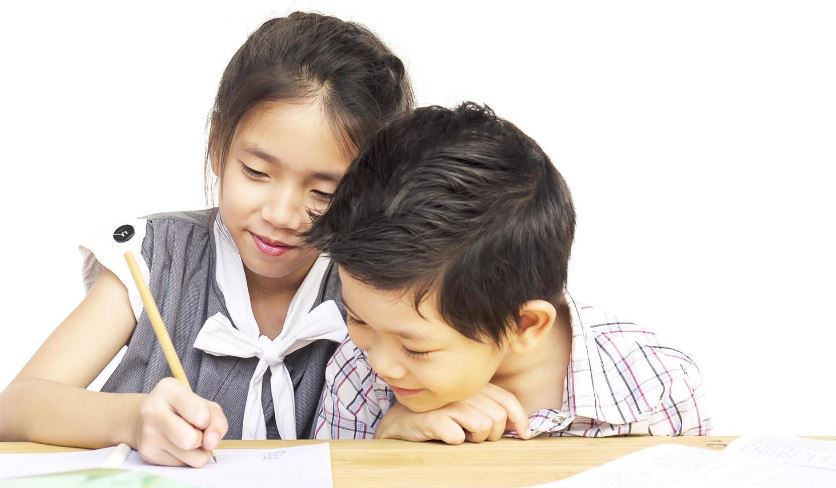
The Power of Educational and Structured Preschool Classroom Themes
As a preschool teacher, selecting a classroom theme may feel daunting. However, themes are pivotal in establishing a structured and educational environment for preschoolers. A well-crafted theme can aid preschoolers in focusing, learning, and flourishing. This article delves into the components of an effective theme and presents twenty themes to construct a stimulating, captivating, and educational setting for preschoolers.
Importance of Preschool Classroom Themes
Preschool classroom themes serve as guiding forces in children’s comprehension of their surroundings. They furnish structure to the learning environment, enabling preschoolers to concentrate on specific subjects or concepts. Themes infuse enjoyment and engagement into learning. For instance, a theme centered around the ocean can incorporate activities like creating a sensory bin filled with sand and seashells or setting up a dramatic play area with a boat and fishing net.
Additionally, themes offer a framework for teachers to devise lesson plans, activities, and assessments. This facilitates the integration of various disciplines into the theme, encompassing math, science, literacy, and social studies, thereby providing preschoolers with a comprehensive education. By selecting an appropriate theme, teachers can render learning exciting and accessible to all preschoolers, irrespective of their individual learning styles or abilities.
Benefits of Structured Preschool Classroom Themes
Structured preschool classroom themes furnish a scaffold for learning, aiding preschoolers in developing cognitive and social-emotional skills. They elucidate expectations and delineate clear behavioral boundaries. For instance, a structured theme revolving around community helpers can enlighten preschoolers about different professions and the significance of collaborative efforts in achieving common goals.
Moreover, structured themes provide avenues for preschoolers to hone their language, social, and emotional skills. Engaging in role-playing activities during a community helper theme, preschoolers can learn to effectively communicate their thoughts and needs to others, fostering confidence, self-esteem, and social adeptness—qualities indispensable for lifelong success. Finally, structured themes instill a sense of routine and predictability, engendering a feeling of safety and security in preschoolers within their learning milieu.
Alphabet Theme
An alphabet theme serves as an excellent introduction to literacy fundamentals for preschoolers. Through this theme, children can acquaint themselves with letters, their sounds, and word formation. Teachers can incorporate activities like letter recognition games, writing exercises, and reading sessions focusing on individual letters of the alphabet. This theme can be tailored to accommodate various skill levels and can be enriched to challenge advanced preschoolers.
Besides learning the alphabet, preschoolers can develop other vital skills such as fine motor skills and hand-eye coordination. Activities like tracing letters, cutting and pasting, and stamping aid in fine motor skill development. Additionally, engaging in activities like molding letters out of playdough or creating collages fosters the identification of different shapes, colors, and textures, enhancing sensory learning.
Nature Theme
A nature theme offers preschoolers an immersive exploration of the natural world, cultivating appreciation and understanding. Activities like nature walks, gardening, and exploring outdoor environments kindle curiosity and observational skills in children. These activities acquaint children with ecosystems and biodiversity, evoking wonder and curiosity about the world around them.
Transportation Theme
A transportation theme provides preschoolers with insights into various modes of travel and spatial concepts. Through activities like creating maps and learning about road safety, children develop problem-solving skills and spatial awareness. Exploring different vehicles and routes broadens their understanding of the world beyond their immediate surroundings.
Community Helpers Theme
A community helpers theme acquaints preschoolers with different professions and their contributions to society. Engaging in role-playing and hands-on activities fosters empathy and respect for diverse roles. Writing letters to community helpers and visiting local professionals deepen children’s understanding of community engagement and cooperation.
Fairy Tale Theme
A fairy tale theme sparks imagination and storytelling skills in preschoolers. Reading, puppetry, and creative writing activities develop language and literacy skills while exploring cultural traditions. Comparing different versions of fairy tales introduces diversity and critical thinking.
Food and Nutrition Theme
A food and nutrition theme educates preschoolers about healthy eating habits and culinary diversity. Cooking activities and exploring food groups teach children about nutrition and cultural diversity. Visiting local markets and learning about food safety instill lifelong habits and curiosity about different cuisines.
Space Theme
A space theme ignites curiosity about the universe, planets, and exploration. Hands -on activities like building models and observing constellations promote critical thinking and scientific inquiry. Learning about space history and achievements fosters a sense of wonder and awe in preschoolers.
Seasons Theme
A seasons theme explores the natural cycles of the environment throughout the year. Activities like seasonal crafts and gardening connect children with nature and its changes. Observing weather patterns and understanding seasonal traditions deepen their appreciation for the world’s diversity and beauty.
Under the Sea Theme
An under the sea theme immerses preschoolers in marine life, fostering appreciation and understanding. Through activities like creating underwater scenes and visiting aquariums, children develop curiosity and respect for ocean habitats. Learning about conservation efforts instills a sense of responsibility and wonder in children.
Weather Theme
A weather theme teaches preschoolers about meteorology and natural phenomena. Hands-on activities like weather charts and experiments encourage observation and prediction skills. Understanding weather’s impact fosters curiosity and respect for nature’s power and unpredictability.
Sports and Fitness Theme
A sports and fitness theme promotes physical activity and healthy habits in preschoolers. Engaging in various sports and exercises develops motor skills and teamwork. Learning about sports history and diverse athletic pursuits encourages appreciation for physical fitness and well-being.
Construction Theme
A construction theme introduces preschoolers to engineering and design principles. Building activities and exploring construction materials foster creativity and problem-solving skills. Creating models and structures empowers children to apply engineering concepts and take pride in their creations.
Conclusion
Preschool classroom themes play a crucial role in creating engaging and structured learning environments. By incorporating diverse themes, teachers can cater to children’s interests while fostering holistic development. Whether exploring nature, space, or community, themed learning experiences inspire curiosity, creativity, and lifelong learning in preschoolers.


